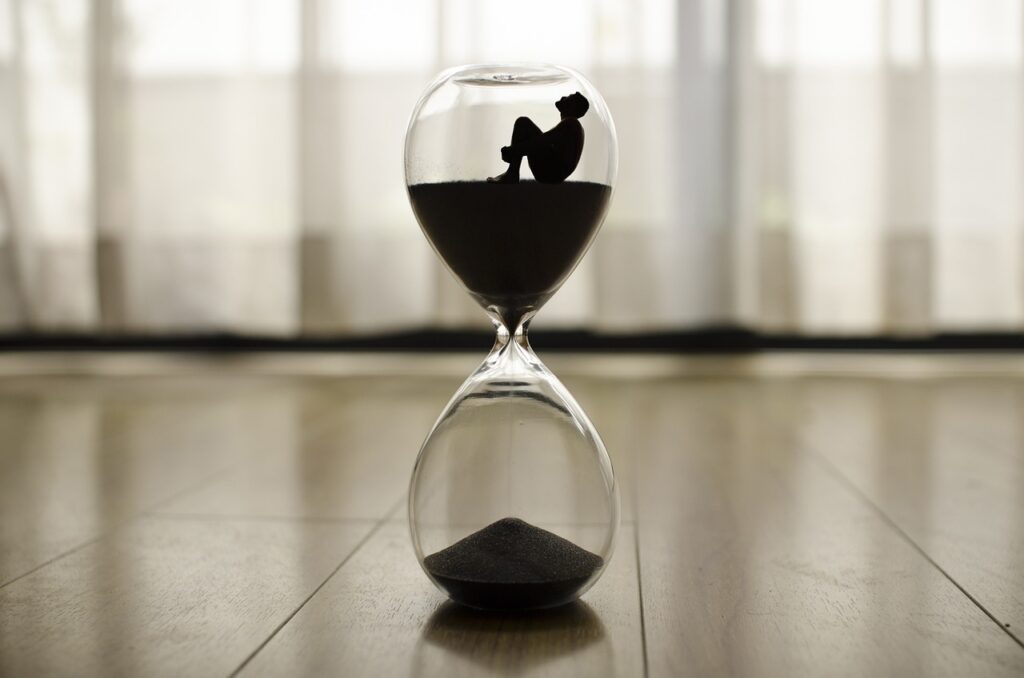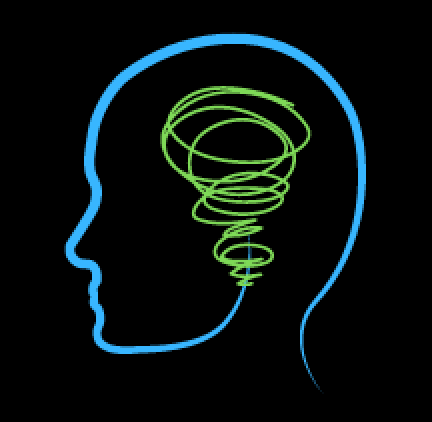This is my mission statement: to help eradicate the stigma and shame surrounding mental health. I found myself having to refocus- to not get lost falling down the rabbit holes of scientific research. Deep diving for days at a time; trying to gather as much pertinent, research-backed information: to help make my blog feel more legit.
Then I remembered, it’s my experience, my day-to-day ups and downs; sharing what it’s like to maintain a balance with life and my mental health, which I do, through therapy, medication, and having people I can rely on to help bring me up when I am down, or bring me down when I am up. For a moment, I lost sight of what I hope to accomplish through this blog.
Raising Awareness for Mental Health
If I get lost in the facts, I wouldn’t be able to share a true perspective of what living with bipolar II, ADHD, and anxiety is like.
It’s important to connect with those who also struggle with their mental health, or parenting busy, hyperactive kiddos; maintaining a work-life balance, and the day-to-day stress that life piles on.
I want to give an honest account of raising a kind, smart, beautiful middle schooler who also faces her own mental health challenges, and a busy and fun elementary-aged daughter with Down Syndrome.
I want to show what it’s like to parent on two ends of the spectrum, putting in the effort to find a balance, which can be messy sometimes.
Feeling Seen and Understood

I don’t believe that our diagnoses define us, but I think it helps others to better understand; it encourages empathy. For true connection, it’s important to be raw, and allow others to see us for the perfectly imperfect humans that we are.
This week I asked my students to do a quick write:
What is something that would help you feel better understood and seen if people knew it about you?
The answers were honest and vulnerable; they gave me insight into who they are as people; their stories reconfirming that all of us just want to feel secure enough to share our full selves, unapologetically.
How Mental Health Affects Memory
Bipolar makes it difficult to concentrate: disrupting attention span and focus. Flitting from one idea to the next, trying to keep up with racing thoughts: feeling bad when I’m in a conversation, trying my hardest to focus, telling myself to tune back in, but busy talking to myself, so I miss even more.
ADHD makes it hard to capture, organize, and imprint information due to the disorganized, rapid input. The racing brain hinders one’s ability to encode information: transferring memories from short-term to long-term.
Anxiety releases cortisol which triggers the fight-or-flight response. Excessive anxiety, fear, and chronic stress exhausts the mind and body leading to memory impairment by disrupting the process behind collecting and storing memories.
How Mental Health Affects My Memory
Pulling up to the Starbucks window, the dark-haired barista tells me it will be thirty dollars and some change. I look at her confused, and tell her that I just paid at the previous window- though I didn’t think it was that much. As I sit there, not sure where we go from here, I look down and see my debit card sitting between my legs. It’s then that I remember that I just went through McDonald’s for a sweet tea. They have double windows.
Memory has never been a dominant trait for the females in my family. I can’t count the number of times, or maybe I have and forgot, my lapse in memory has caused me to forget my wedding anniversary- for multiple years in a row (he would forget as well, so that makes it better right?); birthdays (including my own), doctor appointments, IEP meetings.
My littlest has Down Syndrome, and March 21st was World Down Syndrome Day (there are three copies of chromosome 21, hence 3/21). I knew it was coming; I thought of it many times leading up to the day.
I planned to look for blue and yellow clothes to lay out; wear crazy socks in celebration of the amazing little human being that she is. It wasn’t until I got a beautiful message from one of her favorite teachers that the day fully processed:
“HAPPY WORLD DOWN SYNDROME DAY to my Tay! I’d love to FaceTime her today if I can!!!”
I knew she would be so excited, and she was. We discussed it many times: after you eat, do you want to call Mrs. T? After your bath, do you want to call Mrs. T? It wasn’t until she was in bed that it hit me; we hadn’t called Mrs. T.
The Best of Intentions
I mean to send that text or email; reach out to the friend who’s been on my mind; call my mom or sisters and chat. I mean to finish that class I signed up and paid for, or do my business taxes.

But time slips away, and my mind always feels overwhelmed: constantly behind on things:
- Dentist appointments not rescheduled
- Blood work from a previous psychiatrist that never got done
- Phone calls I keep trying to remember to make
- Needing a mammogram but forgetting to call.
How My Husband Handles My Lack of Memory

“What are some things that I forget?” I ask my husband. “Are you serious? Where is my phone? Did I say that already?” he says. Valid points. I tend to have a lot of repeat conversations.
Ani DiFranco puts it best in her song, “Little Plastic Castle,” when she says:
They say goldfish have no memory
I guess their lives are much like mine
And the little plastic castle
Is a surprise every time
My husband knows that my brain won’t hold onto things until it’s in that “crunch” time window. So he repeats quite often that his brothers are coming to visit, or that he is going away for a work trip. He continues to do so until my brain is finally able to absorb the information and hold on to it, at least for a little while.
How My Daughters Handle My Lack of Memory
Not only can it be hard for me to retain information, but it can also take me a few moments to fully process what is being said. My oldest is usually helpful, repeating what she just said multiple times, until it registers; other times not so much: fair enough.
My oldest gets frustrated and gives the age-appropriate eye-roll and scoff at my forgetfulness, but she will make sure to keep reminding me of an upcoming band concert, or what I was going downstairs for (that’s another story).
On the flip side, both of my girls use my lack of memory against me; telling me I said things that I know I wouldn’t agree to, but then I’m also not so sure.
I find myself struggling at times to answer questions, especially when put on the spot. I am not adept at verbalizing a response right away; that’s why I prefer writing. It allows me the space to process and revise; find the word or image that sits just right.
Learning to live with my obstacles
I read and reread sentences, paragraphs, and pages trying to comprehend what I just took in; finally capturing and assigning meaning after the third time through; taking notes in the margin- or else it would be as if I hadn’t even read the article, essay, or book. I need something visual and tangible to help tie me to that moment.
To help me remember medications, I have a system where I have to put each bottle back in the bag before I can take the pill; that way when I forget if I took it, the bottles are no longer on the counter; that would just confuse me more, leading to a skipped day, in fear that I would take more than I should.
My brain retains information best in color, so my notes and calendar look as though a rainbow exploded, but it allows my brain to process and focus on one section at a time. It also helps me to retain information by visualizing the color, and where it was on the page.
Black and white, or walls of text, make all the words seem to run together. My eyes have a hard time focusing on any particular bit, so I write my notes in all different directions with arrows running all about.

I try to remember that organization allows my brain to rest, not that anyone would know from our disheveled house, and never-ending loads of laundry I can’t seem to keep up with.
Things I know I should do, but I’m not:
Schedule , schedule, schedule!
Everything I read says how beneficial it is to be on a schedule: for bipolar, anxiety, depression, ADHD, and Down Syndrome.
Every summer I try; I plan it all out, make the calendars, organize things in color and group, run to Michael’s a few times to create some type of stunning visual, and then I get sidetracked, or drop in a low, and never follow through.
Finding the Calm in Chaos
Through my research for this week’s piece, I realized that there is no definitive answer as to which disorder causes which part of my memory to be impaired. The simple truth is that they all contribute. So, it is less about assigning blame, and more about understanding that the brain and the memory are impacted by the symptoms related to mental health.
So, I will take my colorful, disorganized notes, and make my endless lists, surrounding myself with people who don’t mind repeating what they said or hearing the same story for the umpteenth time.


Oh wow, this resonates so much. Thank you, thank you, thank you. You have put into words what I have never been able to articulate. When I get that feeling of doubt or skepticism from someone, I’m pointing them here from now on.
This was such a beautiful response; it means a lot that you were able to connect with this. Was there a particular portion that resonated with you? Thank you.
Pingback: THE LONG ROAD TO A BIPOLAR DIAGNOSIS - And on the Mind Goes